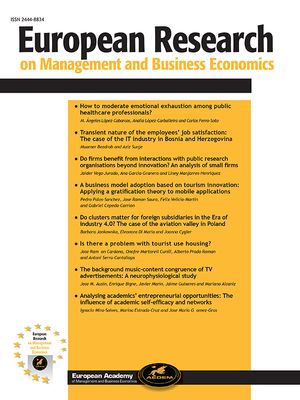La financiación se considera una premisa crítica para los proyectos de innovación de las empresas. Éstos, se caracterizan por tener un alto grado de incertidumbre, complejidad y especificidad. En consecuencia, las empresas pueden experimentar dificultades para encontrar apoyo financiero. Mediante el análisis de redes sociales (Social Network Analysis) pretendemos describir e interpretar el papel que juegan las diferentes instituciones de crédito en la Comunidad Valenciana considerando los atributos de la red que constituyen. Los resultados sugieren la debilidad de los bancos tradicionales y de las empresas de capital riesgo frente a una relativa fortaleza de las iniciativas e instituciones públicas.
Financing has been considered as a critical requirement for firm innovation projects. However, these projects are typically characterized by a high degree of uncertainty, complexity and specificity. As a consequence companies may find difficulties to obtain support from financial markets. By a Social Network Analysis we aim to map and interpret the role of the different credit institutions in the Valencia region considering its network attributes. Findings suggest weakness of traditional banking and venture capital firms.
Esta investigación ha sido financiada por el Ministerio de Ciencia e Innovación. Plan Nacional de I+D+i, referencia ECO2008-04708/ECON.





